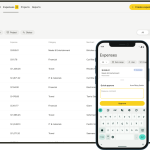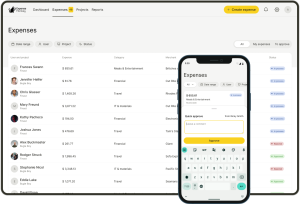In financial terms, a loan is a financial transaction in which a lender promises to lend money to an individual or organization, generally with the promise of repayment. In finance, a loan refers to the lending of monies by one or more persons, institutions, or other entities to another persons, organizations or other entities. The recipient is generally liable only to repay principal and interest on this debt at specified intervals before it is paid and also to return the original principal amount borrowed. A borrower may also choose to extend the term of the loan to avoid the costs of interest during the period of repayment.
There are two types of loans – secured and unsecured. In secured loans, borrowers pledge assets (such as land) against the loan. Unsecured loans do not require collateral to obtain funds. Most home equity loans and credit card loans are examples of unsecured loans. There are different types of loan and the terms and interest rates vary according to the type of loan.
In a loan, the repayment principal is the amount of money originally borrowed plus interest. A balloon loan is a type of loan in which the repayment principal does not amount to more than the value of the property securing the loan. In this case, if the value of the collateral declines, then the borrower is required to repay only the initial balloon-type loan amount.
Mortgages are a type of long-term loan in which a borrower pledges a property as collateral. This collateral can be repossessed in the event the borrower fails to make repayment. In commercial real estate loans, lenders require borrowers to pledge the underlying asset as collateral in order to obtain funds. In such cases, lenders may engage in a “deposit” with the borrower wherewith funds are placed when the contract is initially established.
Gold loans are another example of unsecured loans. A gold loan is collateral free and is obtained to purchase precious metals. Usually, the metal that is purchased is the item that is most desired by the buyer. If the value of the metal does not appreciate, then the purchaser is required to return the original collateral. However, some gold loans are unsecured in nature. In this case, the buyer and seller engage in a “contingency” agreement after delivery of the gold item.
Unsecured personal loans do not require the borrower to have collateral. The amount that can be borrowed can range from a few hundred dollars to a few thousand dollars. The repayment terms are very flexible and allow the borrower to make smaller payments over a longer period of time. These terms would apply if you need the money urgently but you do not want to risk losing your car or house.












More Stories
Beyond Greenwashing: How Sustainable and ESG-Linked Loans Work for You and Your Business
Financial Wellness Programs and Their Impact on Employee Loan Access
Financing Alternative Education Paths: Your Guide to Paying for Bootcamps, Certifications, and More